10 Reasons Your Dog Chews on Paws With Tips
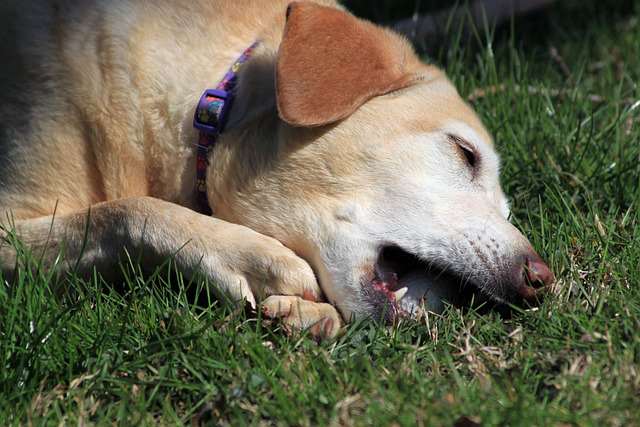
Have you ever noticed your furry friend chewing on their paws? Well, you’re not alone.
In this blog post, we’re going to dive into the possible reasons behind this curious behavior and share some tips on how to help your dog kick the chewy habit.
So, grab a cup of coffee, get cozy, and let’s get to the bottom of those paw-chewing mysteries!
Potential Consequences of Excessive Paw Chewing in Dogs
Excessive paw chewing in dogs can lead to a range of consequences. Firstly, it can cause skin irritation and inflammation, resulting in redness, swelling, and discomfort for the dog.
Secondly, continuous chewing can cause abrasions or wounds on the paws, making them vulnerable to infections.
Additionally, excessive paw chewing can indicate underlying allergies or anxiety issues that need to be addressed.
Lastly, the constant chewing can damage the dog’s nails and pads, leading to pain and difficulty walking.
Why Your Dog Chews on Paws
Dogs may chew on their paws due to various reasons such as allergies, skin irritations, or anxiety, chewing can also provide temporary relief or serve as a self-soothing behavior.
If you notice excessive paw chewing, it is important to consult a veterinarian to determine the underlying cause and provide appropriate treatment.
Let’s dive deeper…
Reasons Your Dog Chews on Paws
The following are some common reasons your dog chews on paws:
1. Allergies
Allergies are a common reason why dogs chew on their paws. It is believed that allergies, such as food allergies or environmental allergies, can cause itchiness and discomfort in a dog’s paws.
This can lead to excessive chewing and licking as the dog tries to relieve the itchiness.
Prevention involves identifying and eliminating the allergen, whether it be a specific ingredient in their food or an environmental trigger.
Addressing allergies in dogs often requires a visit to the veterinarian for proper diagnosis and treatment, which may include medication, dietary changes, or allergy shots.
2. Skin Irritation
Skin irritation is a common reason why dogs chew on their paws. This irritation can be caused by various factors such as allergies, dry skin, fungal or bacterial infections, or even external irritants like grass or chemicals.
Prevention involves regular grooming and checking for any signs of irritation, keeping the dog’s environment clean, and using hypoallergenic products.
To address skin irritation, it is important to identify the underlying cause and consult a veterinarian for proper diagnosis and treatment.
This may include medication, topical treatments, dietary changes, or allergy testing to determine specific triggers.
3. Fleas and Ticks
Fleas and ticks can cause dogs to chew on their paws due to the discomfort and itchiness they cause. These parasites can infest a dog’s fur and skin, leading to irritation and inflammation.
Prevention involves regularly treating dogs with flea and tick preventatives, keeping their living areas clean, and regularly grooming them.
To address the issue, it is important to remove any existing fleas or ticks from the dog’s body using appropriate treatments or tools.
Additionally, providing the dog with toys or chew treats can redirect their chewing behavior away from their paws.
4. Habitual Chewing
Habitual chewing in dogs can be a result of various factors, including allergies, boredom, anxiety, or pain. Dogs may chew on their paws as a self-soothing mechanism.
Prevention involves identifying and addressing the underlying cause, such as providing appropriate mental and physical stimulation, addressing any allergies or pain, and creating a calm and secure environment.
To address habitual chewing, redirect the dog’s attention to appropriate chew toys, discourage chewing on paws through positive reinforcement, and consult with a veterinarian for further guidance and potential treatment options.
5. Anxiety or Stress
Dogs may chew on their paws due to anxiety or stress. This behavior often arises as a coping mechanism or a way to self-soothe.
To prevent this, it is crucial to identify and address the underlying cause of the anxiety or stress.
Providing mental stimulation, regular exercise, and a calm environment can help alleviate these issues.
Additionally, using positive reinforcement training techniques can redirect the dog’s focus and discourage paw chewing.
6. Boredom or Frustration
Boredom or frustration can be a reason why dogs chew on their paws. When dogs lack mental stimulation or are unable to release pent-up energy, they may resort to chewing their paws as a way to alleviate their boredom or frustration.
To prevent this behavior, it is important to provide dogs with regular exercise, interactive toys, and mental enrichment activities.
Additionally, establishing a consistent routine and sticking to it can help alleviate boredom and frustration.
If a dog is already exhibiting paw-chewing behavior, addressing it involves identifying the root cause and addressing it through behavior modification techniques, positive reinforcement, and seeking professional help if necessary.
7. Paw Infections
Paw infections such as bacterial or fungal, are a reason why dogs chew on their paws. These infections can occur when there is a break in the skin, allowing bacteria or fungi to enter and cause irritation.
Prevention involves keeping your dog’s paws clean and dry, regularly trimming their nails, and avoiding exposure to contaminated environments. If your dog is already experiencing an infection, it is important to seek veterinary care for proper diagnosis and treatment.
Addressing the infection may involve administering topical or oral medications, implementing a specific hygiene routine, and addressing any underlying health issues that may be contributing to the problem.
8. Claw Problems
Claw problems in dogs, such as broken or ingrown claws, can lead to paw chewing. This behavior may occur due to various reasons, including discomfort or pain caused by the claw issues.
Prevention involves regular nail trimming and inspection to identify any abnormalities. Addressing the problem requires seeking veterinary assistance to treat the broken or ingrown claws.
Additional measures, such as providing appropriate chew toys and ensuring a balanced diet, can help redirect the dog’s chewing behavior and promote overall paw health.
9. Dry Skin
Dry skin can be a common reason why dogs chew on their paws. Dry skin can cause irritation and discomfort, leading dogs to lick or chew at their paws in an attempt to relieve the itchiness.
This can result in further damage to the skin, creating a vicious cycle. Prevention involves ensuring that your dog’s environment is adequately humidified, providing a balanced diet rich in essential fatty acids, and avoiding harsh chemicals in grooming products.
Addressing dry skin in dogs can be done by using moisturizing paw balms, bathing with gentle, moisturizing shampoos, and consulting with a veterinarian for potential underlying health issues.
10. Burnt Paw Pads in Summer
Burnt paw pads in summer can be a reason why dogs chew on their paws. This occurs when dogs walk on hot surfaces like pavement or sand, causing their paw pads to get burned.
Prevention can be done by avoiding walking dogs during the hottest parts of the day, providing them with protective booties, or walking them in grassy or shaded areas.
To address burnt paw pads, owners can apply a cool compress to soothe the affected area, keep the dog’s paws clean, and consult a veterinarian if the condition worsens or persists.
Read more about different dog paw problems.
How To Stop Dog From Chewing Paws
To stop a dog from chewing their paws, there are several practical steps you can take. Here are some tips:
1. Identify the underlying cause: Before addressing the paw chewing behavior, it’s important to determine the root cause. Dogs may chew their paws due to physical discomfort, allergies, anxiety, boredom, or other reasons. Identifying the cause will help you address the problem more effectively.
2. Invest in dog booties: Dog booties can be used to protect your dog’s paws and prevent them from chewing. These booties act as a barrier between your dog’s teeth and its paws, keeping them from tearing at the skin and preventing further infections. They are typically used in harsh weather conditions, but can be used whenever needed.
3. Use an E-collar: An E-collar, also known as the “cone of shame,” can be used to prevent your dog from accessing its paws. This collar has a large dish that wraps around your dog’s neck, keeping them from licking or chewing their paws. It is commonly used by veterinarians to prevent dogs from licking their surgical stitches and can be effective in stopping paw chewing.
4. Physical deterrents: You can use physical deterrents, such as no-lick strips or bitter sprays, on your dog’s paws to discourage chewing. These products have a bitter taste that dogs dislike, making them less likely to chew on their paws.
5. Address underlying health issues: Paw chewing can be a sign of underlying health problems, such as allergies, infections, or pain. It is important to consult your veterinarian to determine the cause of the paw chewing and address any underlying health issues. Treating the underlying problem can often help stop the paw chewing behavior.
6. Provide mental and physical stimulation: Boredom and anxiety can contribute to excessive paw chewing. Make sure your dog is getting enough mental and physical exercise to keep them engaged and stimulated. Provide interactive toys, playtime, and regular walks to help alleviate boredom and reduce stress.
7. Keep the paws clean and moisturized: Regularly clean your dog’s paws to remove any potential irritants or allergens. You can use a mild, pet-safe paw cleanser to gently clean the paws. Additionally, using a dog paw balm or moisturizer can help keep the paws hydrated and prevent dryness, which can contribute to itching and chewing.
8. Address anxiety and stress: If your dog’s paw chewing is due to anxiety or stress, it’s important to address these underlying issues. Provide a calm and secure environment for your dog, use calming techniques such as soothing music or pheromone diffusers, and consider consulting with a professional dog trainer or behaviorist for guidance.
9. Consult a professional: If the paw chewing persists or is accompanied by other concerning symptoms, it is best to consult a professional, such as a veterinarian or a certified dog behaviorist. They can provide a more personalized assessment and recommend specific strategies or treatments for your dog’s situation.
Read more about caring for your dog paw.
Frequently Asked Questions
Why does my dog chew on their paws?
Dogs may chew on their paws for various reasons. It could be due to allergies, skin irritations, fleas, boredom, anxiety, or even just a habit. If you notice excessive paw chewing, it’s best to consult your veterinarian to determine the underlying cause.
Is it normal for dogs to chew on their paws?
Occasional paw chewing is relatively normal for dogs, as they may use their mouths to groom or relieve minor irritations. However, if the chewing becomes excessive, causes wounds, or leads to hair loss, it’s important to investigate further and seek professional advice.
How can I prevent my dog from chewing their paws?
To prevent excessive paw chewing, you can try a few things. Regularly inspect your dog’s paws for any signs of irritation or injury. Keep their paws clean and dry. Provide appropriate chew toys to redirect their chewing behavior. Consider enriching their environment with mental and physical stimulation to alleviate boredom or anxiety.
Can allergies cause my dog to chew on their paws?
Yes, allergies can be a common cause of paw chewing in dogs. Allergies, whether food-related or environmental, can cause itching and discomfort, leading to excessive paw licking and chewing. If you suspect allergies, consult your vet to determine the triggers and explore treatment options.
Should I be concerned if my dog chews their paws excessively?
Excessive paw chewing can be a cause for concern, as it may indicate an underlying issue. It could range from allergies, skin infections, and parasites, to anxiety-related problems. It’s best to monitor the behavior and consult with your veterinarian to rule out any health issues and address the problem accordingly.
When should I seek veterinary help for my dog’s paw chewing?
If your dog’s paw chewing is persistent, severe, or accompanied by other symptoms like redness, swelling, sores, or changes in behavior, it’s crucial to seek veterinary help promptly. A professional can examine your dog, diagnose any underlying conditions, and recommend appropriate treatment to help alleviate the discomfort and prevent further complications.
Conclusion
In conclusion, remember that our furry friends rely on us to keep them happy and healthy.
If you notice your dog chewing on their paws, it’s essential to investigate the root cause, whether it’s allergies, boredom, or anxiety.
By providing appropriate chew toys, regular exercise, and seeking the advice of a veterinarian if needed, we can help our dogs find relief and put their best paw forward!

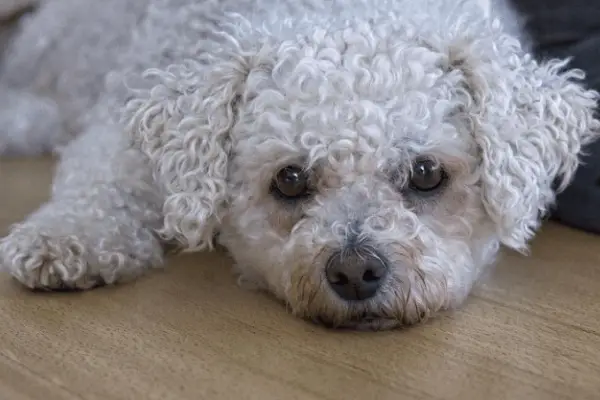
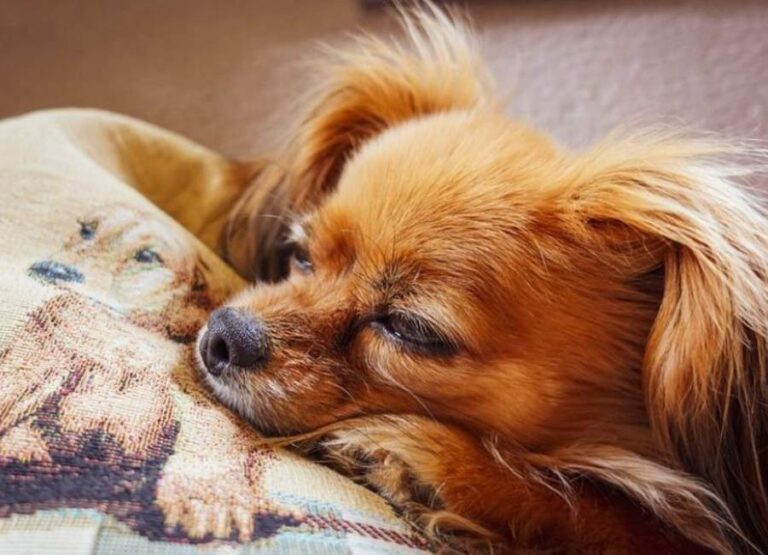
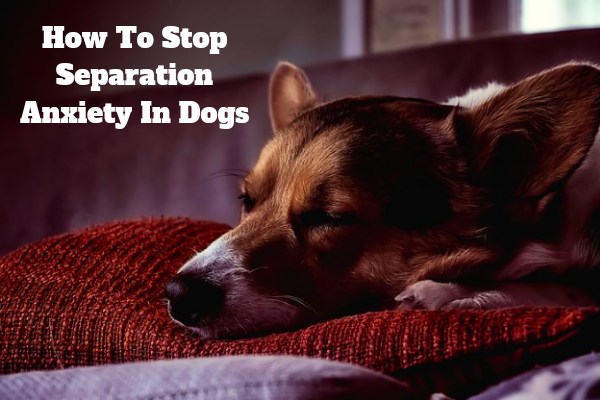
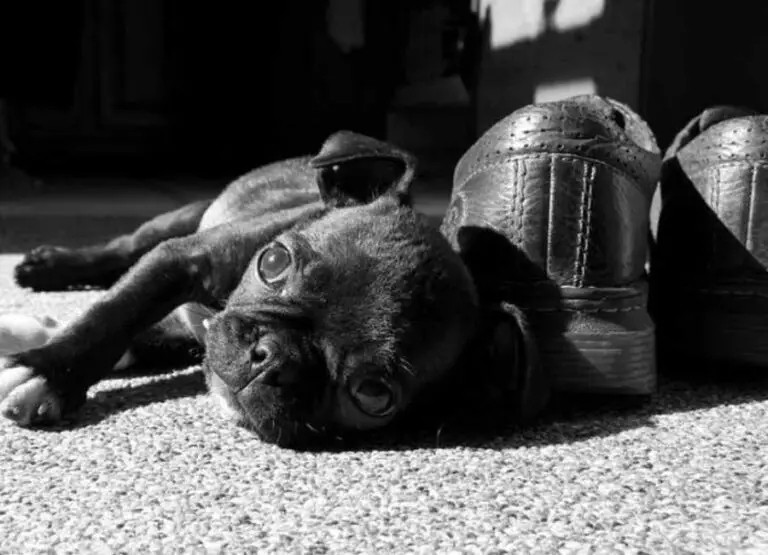
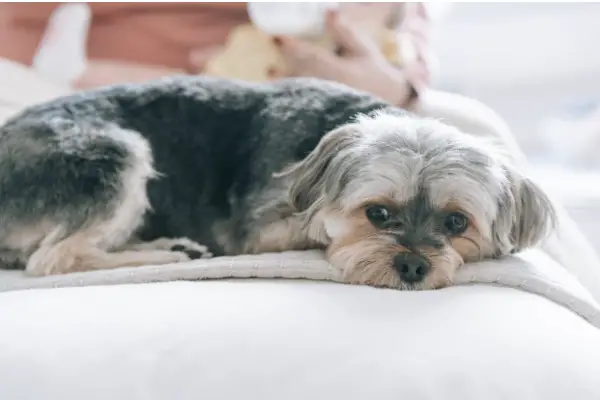
![Where Do Dogs Get Worms From [10 Top Places] Where Do Dogs Get Worms From](https://petcreeks.com/wp-content/uploads/2021/07/Where-Do-Dogs-Get-Worms-From-768x644.jpg)